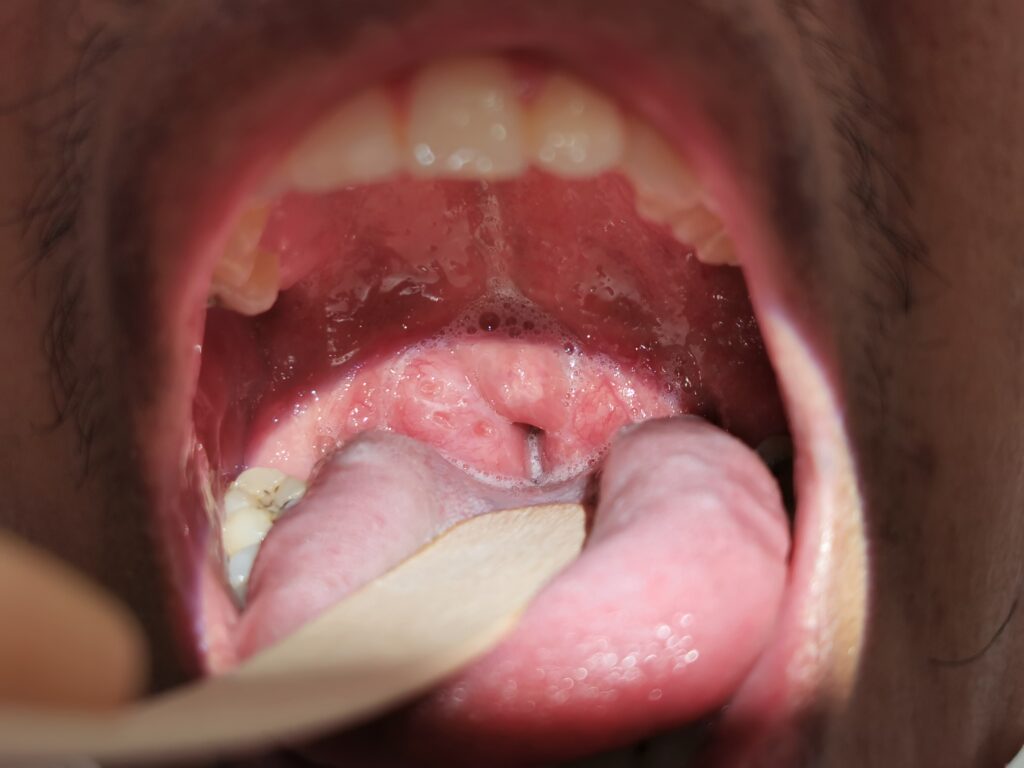Do you find yourself constantly feeling fatigued, waking up with headaches, or experiencing difficulty concentrating during the day? These seemingly harmless sleep issues may be signs of a dangerous, yet less known health problem. In this blog, we uncover the detrimental effects of poor sleep habits, particularly related to enlarged tonsils and sleep apnea.
What Happens When We Sleep?
During sleep, the body undergoes a remarkable process of restoration and repair. As we enter the sleep cycle, our brain waves slow down, and our body relaxes, preparing for a deep slumber. When we rest, important body processes take place, such as tissue growth and repair, muscle regeneration, and the release of growth hormones that aid in cell renewal. In addition, the immune system becomes more active, combating infections and promoting overall well-being. When we dream, our brain consolidates memories and processes emotions, ensuring mental clarity and emotional stability when we wake. Sleep is not just a state of rest; it is a vital period of rejuvenation and healing that keeps us healthy and ready to face a new day.
Enlarged Tonsils Block Breathing During Sleep

A normal airway during sleep allows for smooth and unobstructed airflow, ensuring proper oxygen intake. However, when the tonsils become enlarged, they can obstruct the airway, leading to breathing difficulties during sleep. This obstruction can disrupt the normal flow of air, causing interruptions in breathing and potentially giving rise to conditions like sleep apnea.
Sleep Apnea: A Silent Killer in the Night
By the name itself, pnea= breath, a= absence.
Apnea is therefore the absence of breath. When you stop breathing at night because of upper airway obstruction with enlarged tonsils, your body will be in self-preservation mode: it won’t allow you to die in your sleep. It will then wake you up so you start breathing. This affects your quality of sleep, as well as your overall health and well-being. The repeated pauses in breathing can significantly impact oxygen levels in the body, leading to a number of complications if left untreated.
Complications of Untreated Sleep Apnea
The consequences of untreated sleep apnea extend far beyond mere sleep disturbances. When your sleep is disturbed, the body loses the chance to repair and recover resulting in widespread effects on various organ systems.
The cardiovascular system is particularly impacted, with sleep apnea increasing the risk of high blood pressure, heart disease, and stroke. The respiratory system suffers as well, with decreased oxygen levels and increased carbon dioxide levels leading to chronic respiratory issues. Sleep apnea also affects the neurological system, contributing to cognitive impairments, memory problems, and an increased risk of accidents. Additionally, metabolic disorders like obesity and diabetes are closely associated with sleep apnea, highlighting the far-reaching consequences of this sleep disorder.
For Diagnosis and Treatment of Sleep Apnea, see this BLOG.
Experience expert ENT surgical care tailored to your needs.
Book now to schedule your appointment with our skilled ENT surgeon now and take the first step towards a healthier you.
Your well-being is our top priority.

